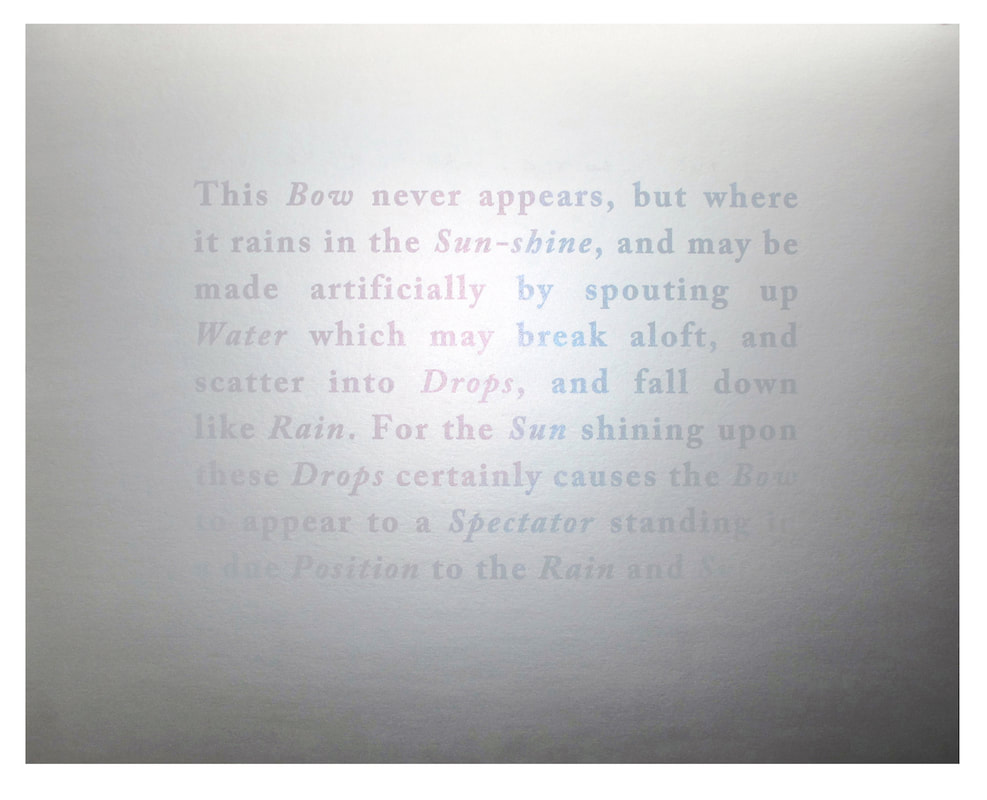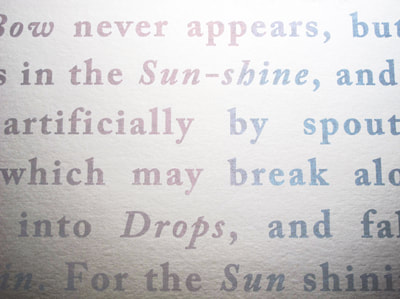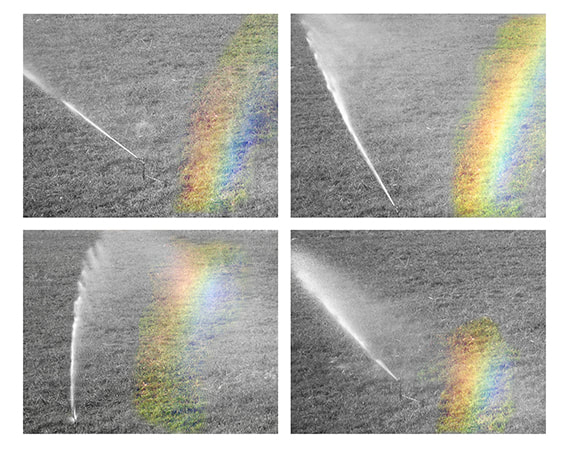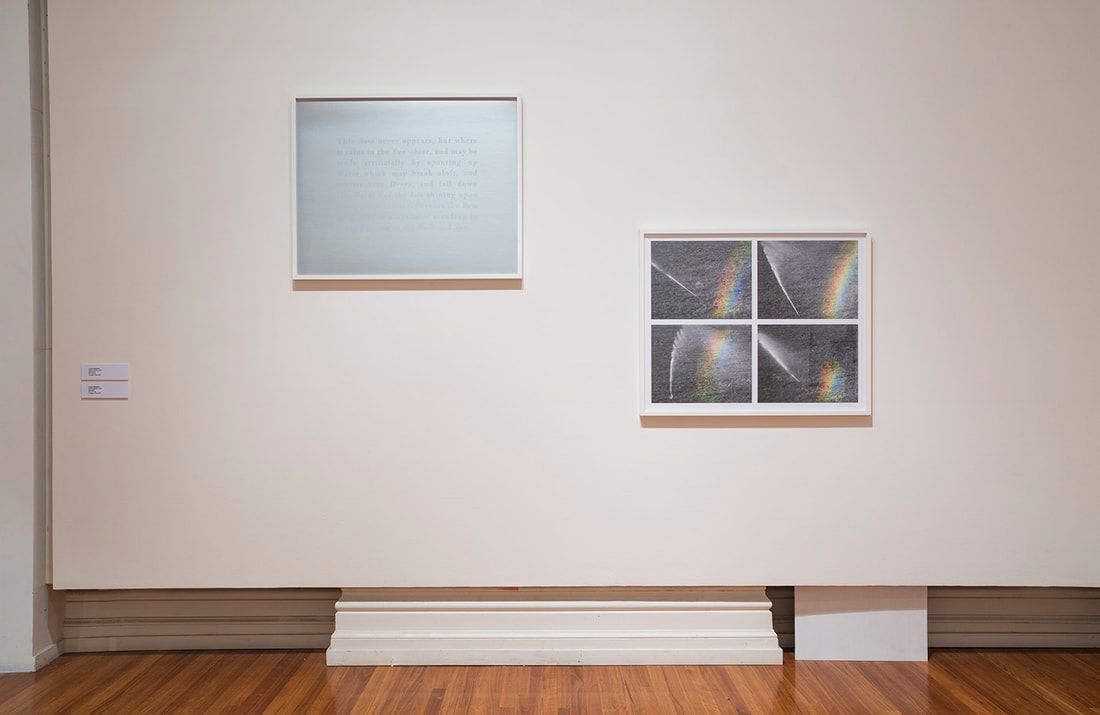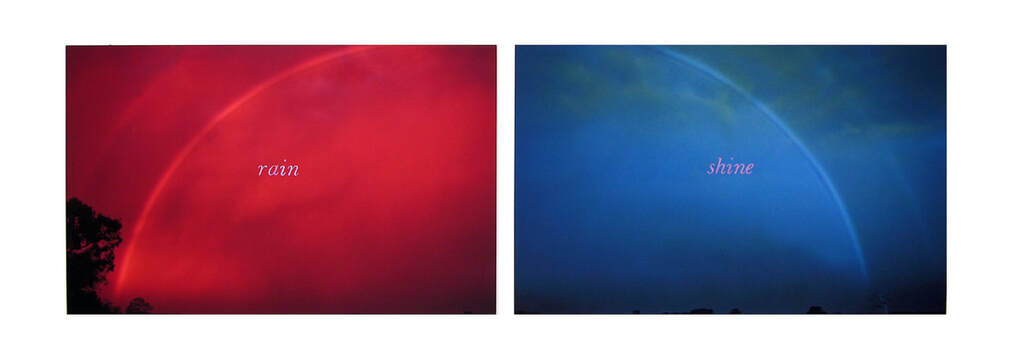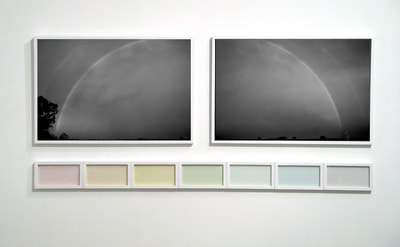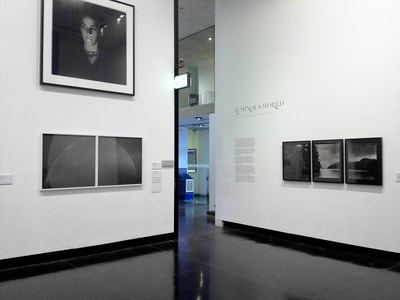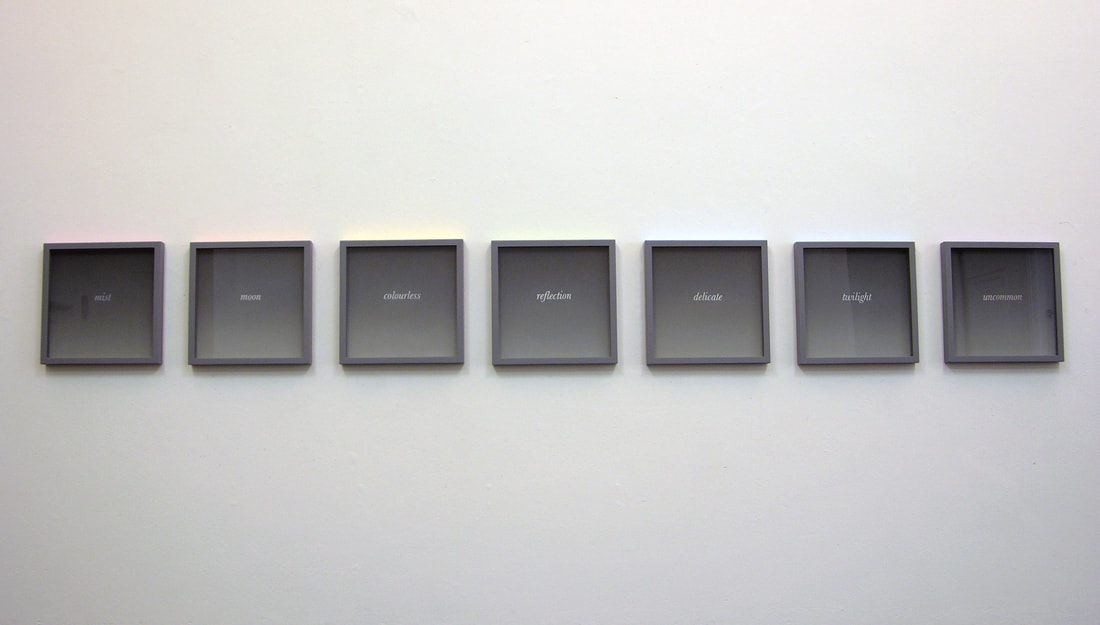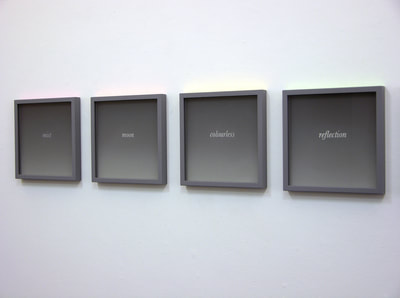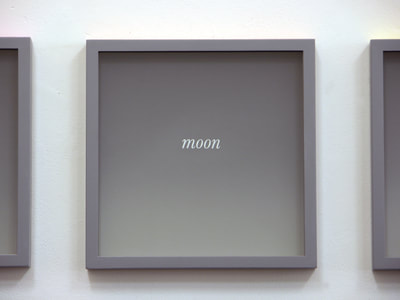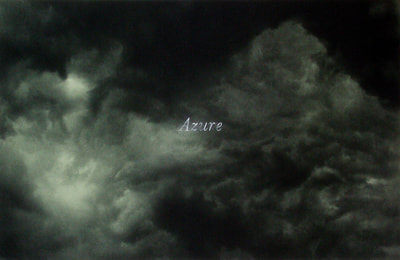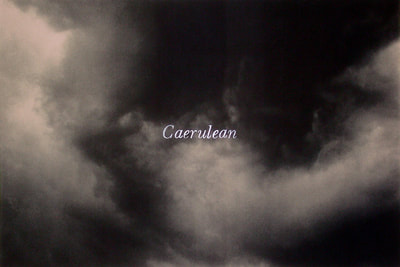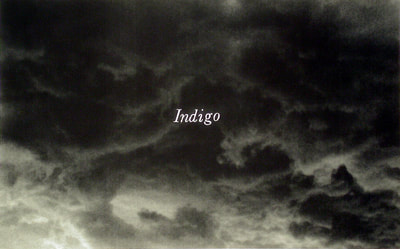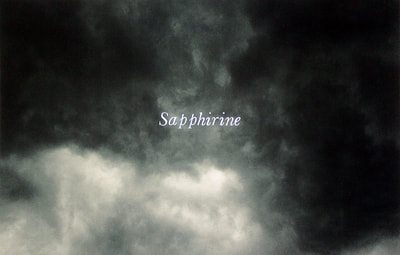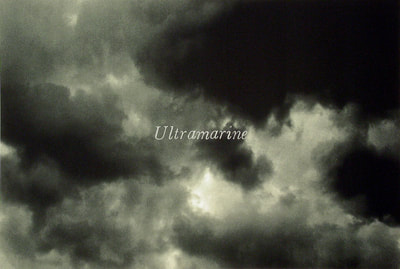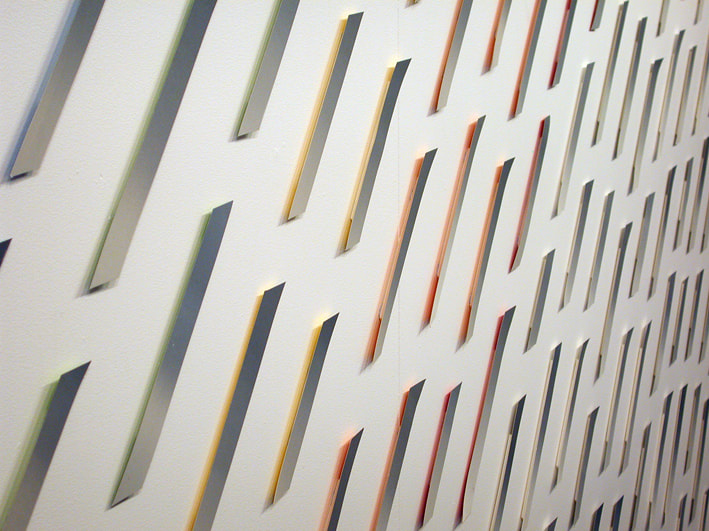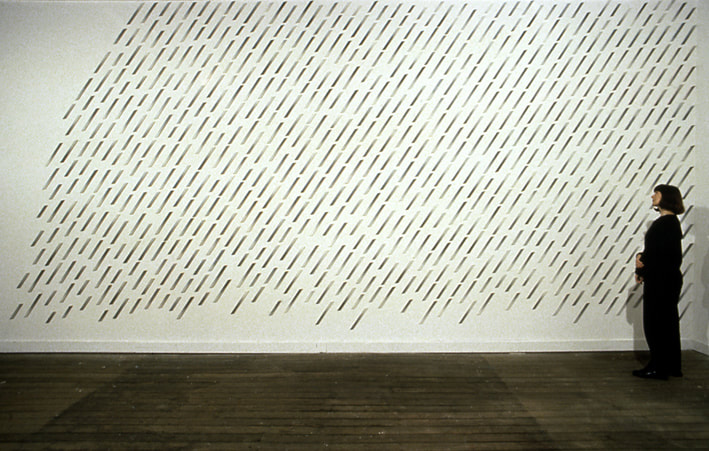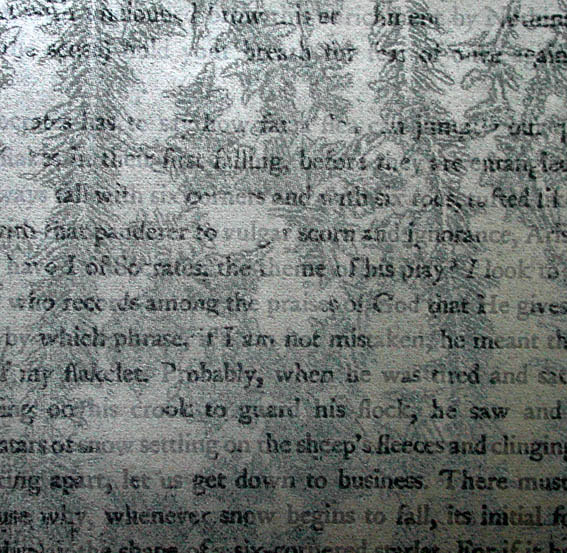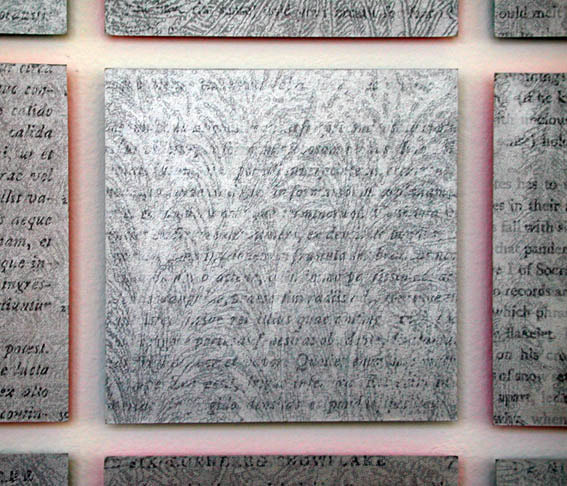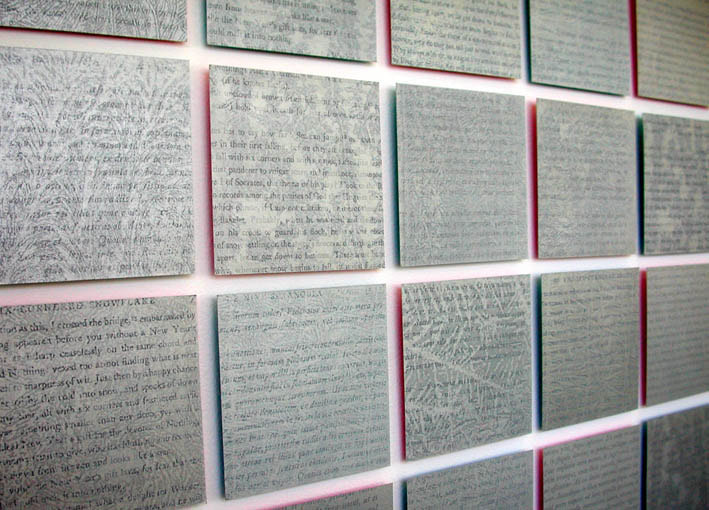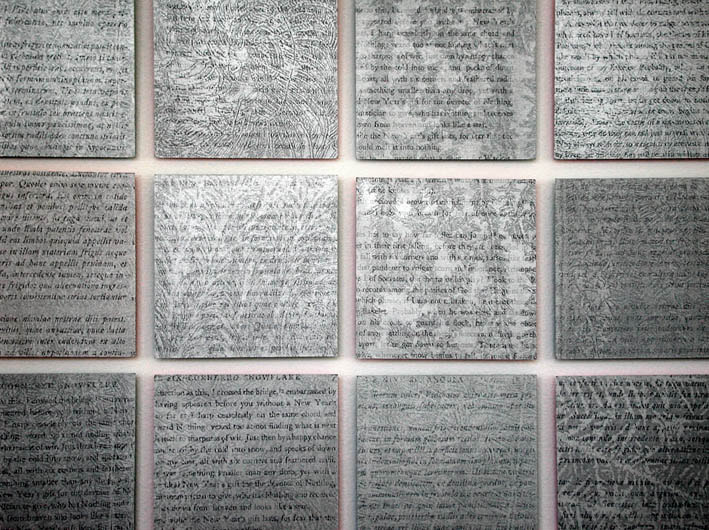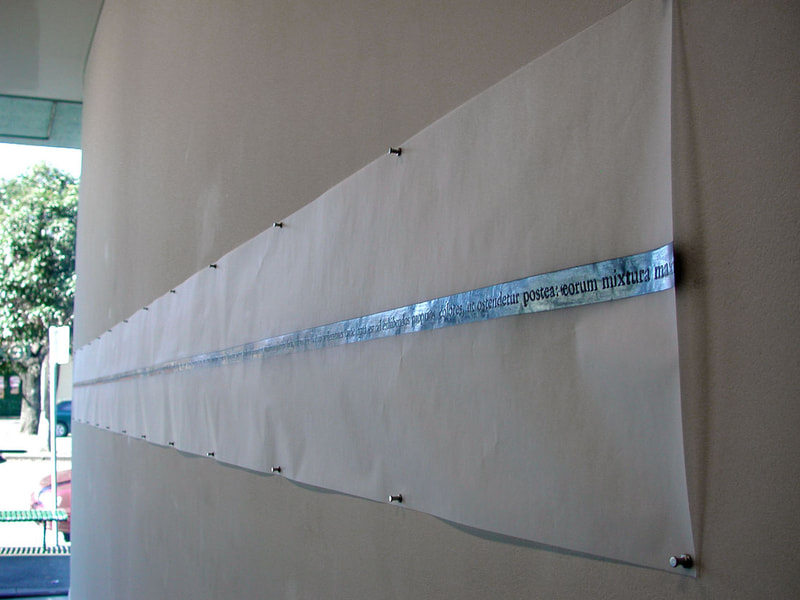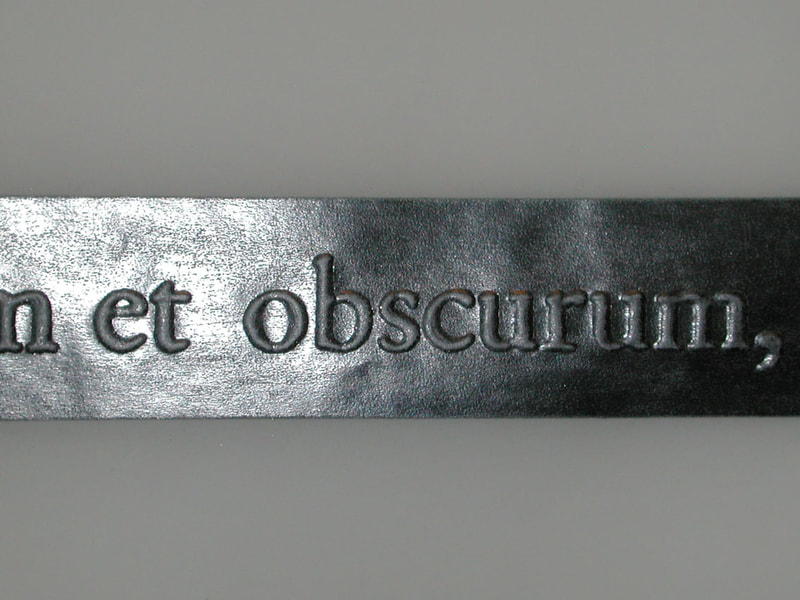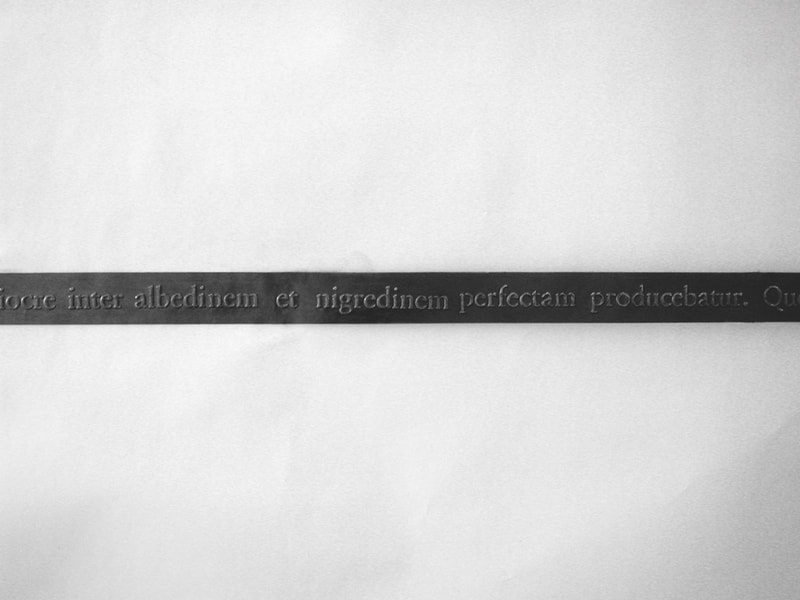Splitting Light#5 2013. Screenprint flocked with mica. 80 X 100 cm
Splitting Light#6 2013. Inkjet print. 80 X 100 cm
Splitting Light#5 and #6 . Exhibited: Out of the Matrix at RMIT Gallery Melbourne, 2016. Photograph: Tobias Titz. https://rmitgallery.com/exhibitions/out-of-the-matrix/
What a Day! 2006. Inkjet prints. Each 50 X 75 cm
Wonder (between eye and sun) 2005. Inkjet and screen print. Each 75 X 95 cm
Double Moonbow#1 2006. Inkjet and relief prints Double Moonbow 2006. Inkjet print and acrylic on wood. Exhibited: Luminous World at Ian Potter Gallery, University of Melbourne 2014
Collection: Wesfarmers, Perth
Collection: Wesfarmers, Perth
Double Moonbow#2 2006. Screenprint and relief print, acrylic on wood. Each 28 X 28 cm. Overall 28 X 250 cm.
Exhibited: Proof at National Gallery of Victoria 2006. www.ngv.vic.gov.au/exhibition/proof/ Collection: National Gallery of Victoria, Melbourne
Exhibited: Proof at National Gallery of Victoria 2006. www.ngv.vic.gov.au/exhibition/proof/ Collection: National Gallery of Victoria, Melbourne
Sky Blue 1998. Inkjet and relief prints. Each 80 X 100 cm.
Sudden Shower 1999. Relief prints 300 X 800 cm.
